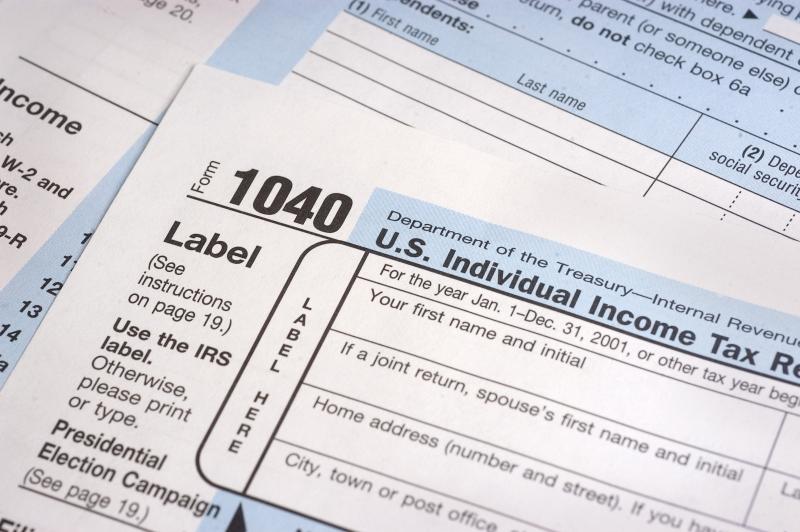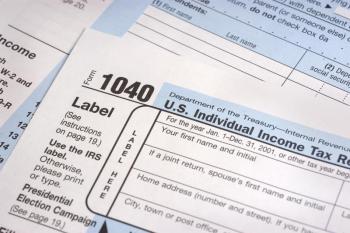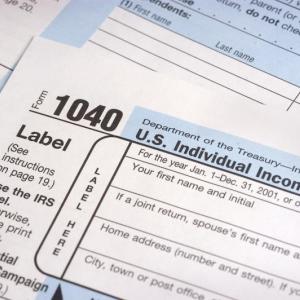IRS outlines solutions for individuals to pay federal income taxes amid pandemic
WASHINGTON, D.C. ― The Department of the Treasury and IRS announced Monday the tax filing and payment deadline of July 15 will not be postponed.
Individual taxpayers unable to meet the July 15 due date, however, can request an automatic extension of time to file until Oct. 15.
Due to COVID-19, the original filing deadline and tax payment due date for 2019 was postponed from April 15 to July 15.
The IRS reminds taxpayers filing Form 1040 series returns that they must file Form 4868 by July 15 to obtain the automatic extension to Oct. 15. The extension provides additional time to file the tax return, it is not an extension to pay any taxes due.
The IRS urges people who owe taxes, even if they have a filing extension, to carefully review their situation and pay what they can by July 15 to avoid penalties and interest.
For people facing hardships, including those affected by COVID-19, who cannot pay in full, the IRS has several options available to help.
To avoid interest and penalties, the IRS encourages them to pay what they can and consider a variety of payment options available for the remaining balance.
“The IRS understands that those affected by the coronavirus may not be able to pay their balances in full by July 15, but we have many payment options to help taxpayers,” said IRS Commissioner Chuck Rettig. “These easy-to-use payment options are available on IRS.gov, and most can be done automatically without reaching out to an IRS representative.”
The IRS recommends that taxpayers who are unable to pay their taxes in full should act as quickly as possible. Tax bills can quickly accumulate more interest and penalties the longer they sit.
Several payment options are available on IRS.gov/payments to help taxpayers who can’t pay in full and some can offer taxpayers smaller penalties.
Though interest and late-payment penalties continue to accrue on any unpaid taxes after July 15, the failure to pay tax penalty rate is cut in half while an installment agreement is in effect.
The usual penalty rate of 0.5% per month is reduced to 0.25% For the calendar quarter beginning July 1, 2020, the interest rate for underpayment is 3%.
Most taxpayers who cannot pay in full have the following payment options:
Online Payment Agreement — These are available for individuals who owe $50,000 or less in combined income tax, penalties and interest and businesses that owe $25,000 or less in combined payroll tax, penalties and interest and have filed all tax returns. Most taxpayers qualify for this option, and an Online Payment Agreement can usually be set up in a matter of minutes on IRS.gov/OPA. Online Payment Agreements are available Monday – Friday, 6 a.m. to 12:30 a.m.; Saturday, 6 a.m. to 10 p.m.; Sunday, 6 p.m. to midnight. All times are Eastern time. Certain fees may apply.
Installment Agreement — Taxpayers who do not qualify to use the online payment agreement option, or choose not to use it, can also apply for a payment plan by phone, or by mail by submitting Form 9465, Installment Agreement Request. Installment agreements paid by direct deposit from a bank account or a payroll deduction will help taxpayers avoid default on their agreements. It also reduces the burden of mailing payments and saves postage costs. Certain fees may apply.
Temporarily Delaying Collection — You can contact the IRS to request a temporary delay of the collection process. If the IRS determines a taxpayer is unable to pay, it may delay collection until the taxpayer's financial condition improves. Penalties and interest continue to accrue until the full amount is paid.
Offer in Compromise — Certain taxpayers qualify to settle their tax bill for less than the amount they owe by submitting an offer in compromise. To help determine eligibility, use the Offer in Compromise Pre-Qualifier tool.
Automatic Extension of Time to File
Taxpayers who need more time to prepare and file their federal tax return can apply for an extension of time to file until Oct. 15.
To get an extension, taxpayers must estimate their tax liability on the extension form and pay any amount due.
Individual taxpayers have several easy ways to file Form 4868, Application for Automatic Extension of Time to File U.S. Individual Income Tax Return, by the July 15 deadline.
Tax software providers have an electronic version available.
In addition, all taxpayers, regardless of income, can use IRS Free File to electronically request an automatic tax-filing extension.
Event Date
Address
United States



























